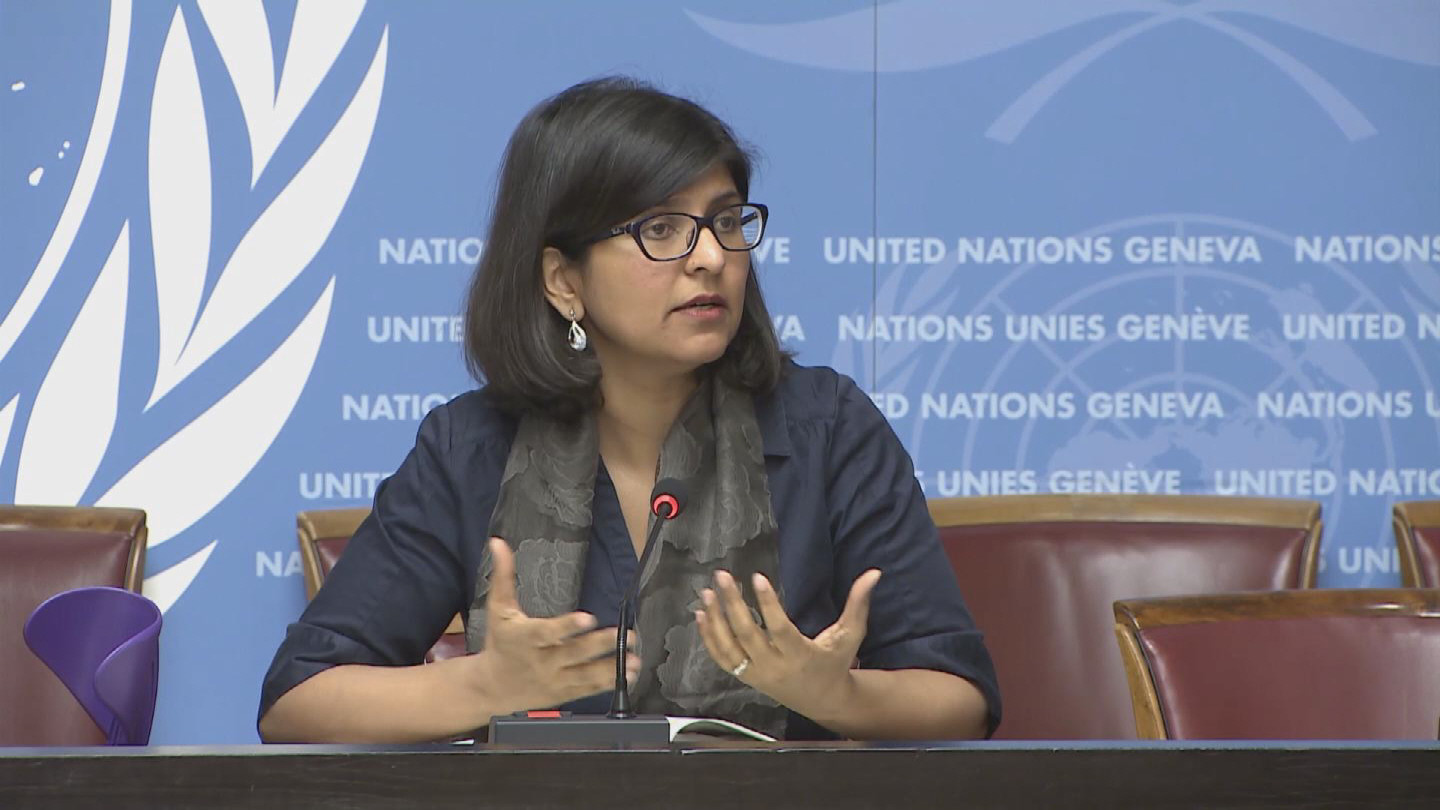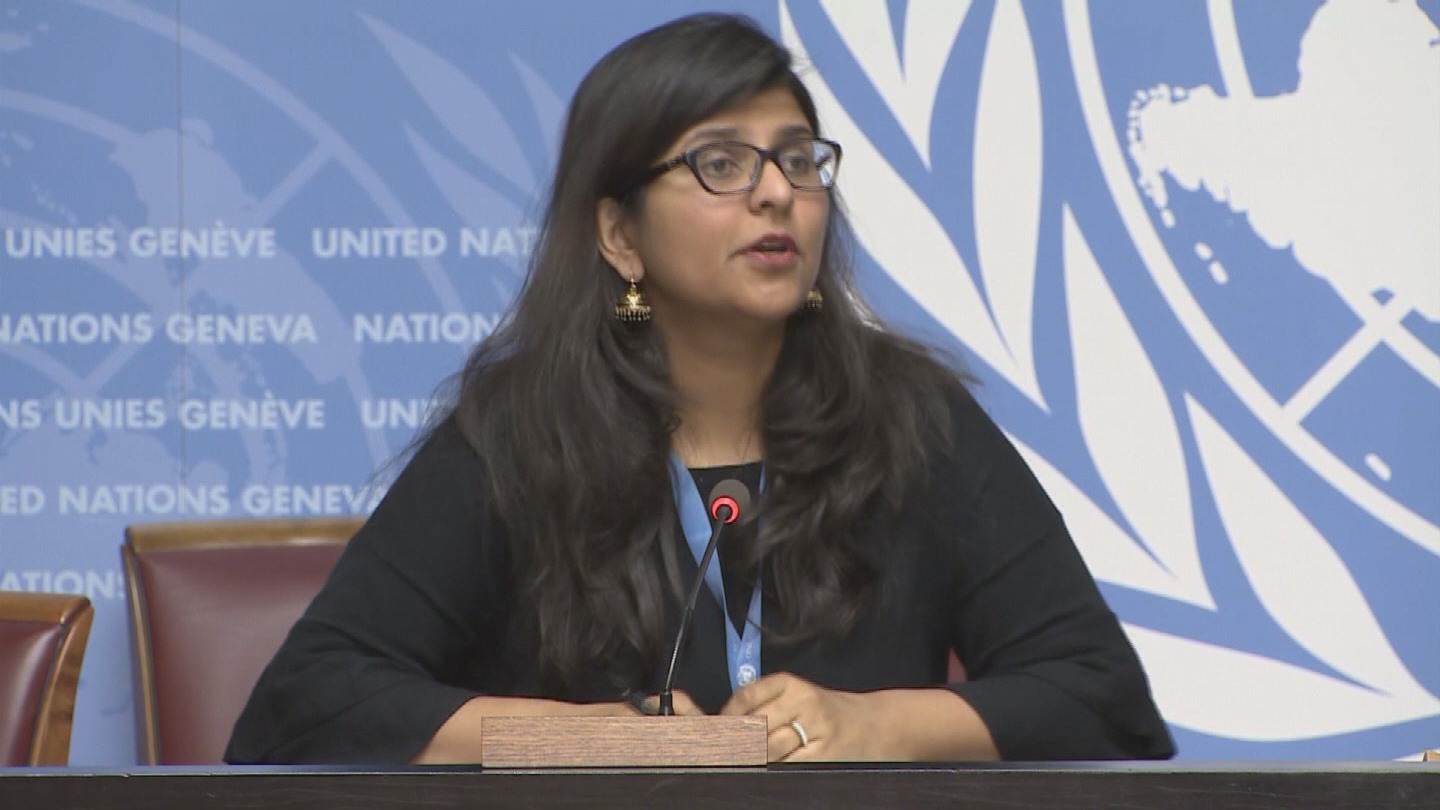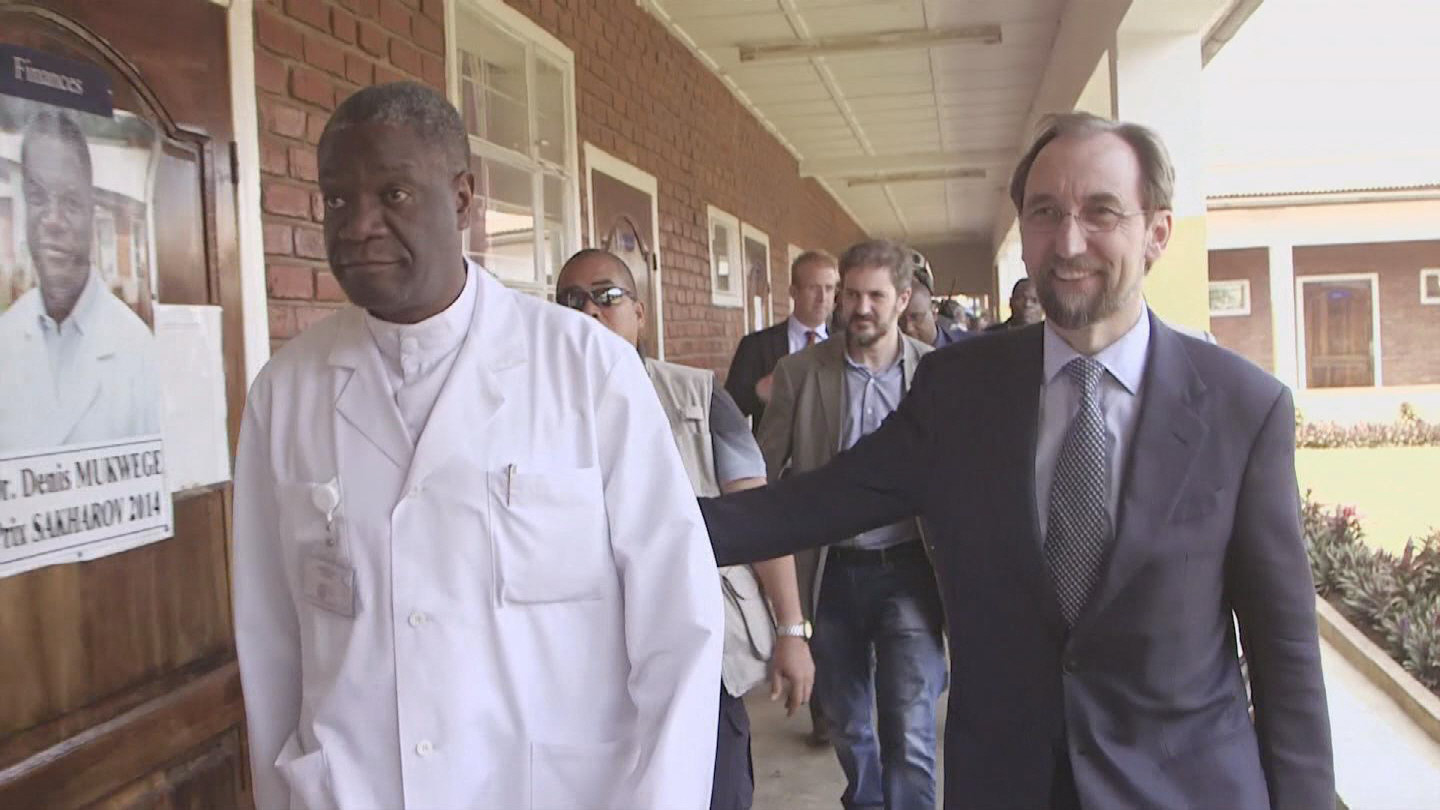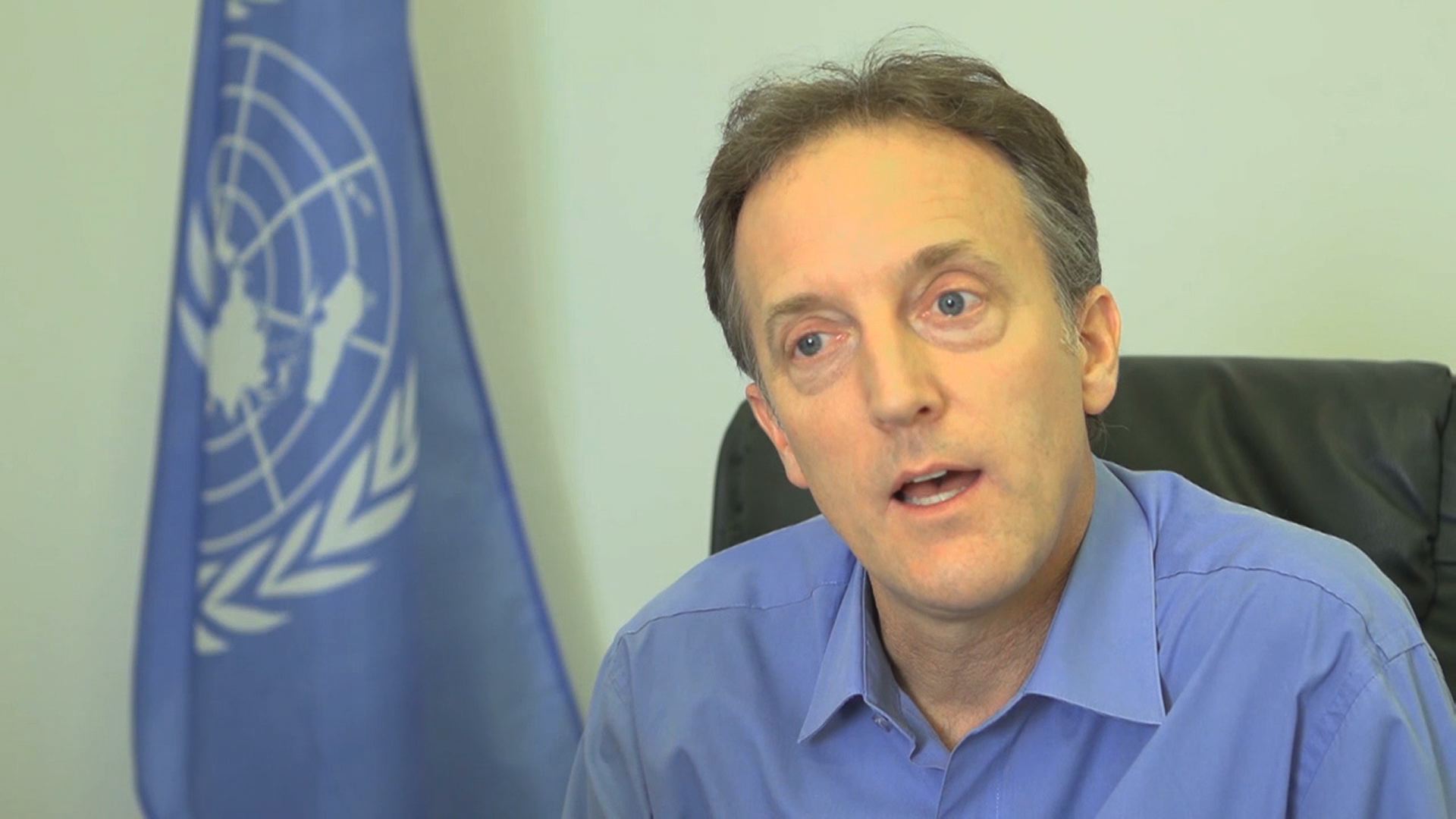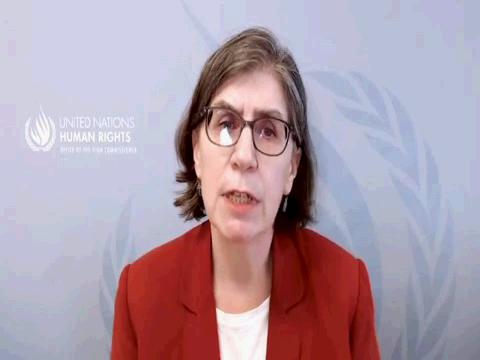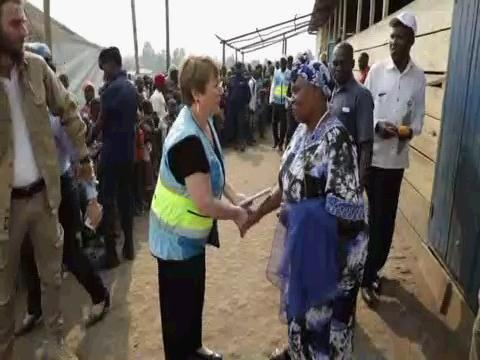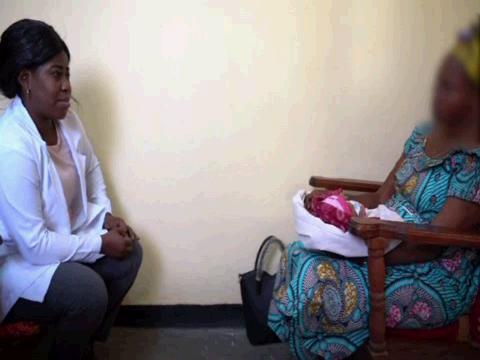OHCHR / DRC TURK TSHISEKEDI
STORY: OHCHR / DRC TURK TSHISEKEDI
TRT: 03:34
SOURCE: OHCHR
RESTRICTIONS: NONE
LANGUAGE: FRENCH / NATS
DATELINE: 18 APRIL 2024, KINSHASA, DEMOCRATIC REPUBLIC OF CONGO
1. Travelling shot, streets Kinshasa
2. Various shots, Presidential palace Kinshasa
3. Various shots, arrival Volker Turk
4. Various shots, meeting HC / President
5. Various shots, President holding a meeting with UN Human rights delegation
6. SOUNDBITE (French) Volker Türk, UN High Commissioner for Human Rights:
“In North Kivu, the M23 armed group continues to sow terror – killing and abducting local people, and also frequently targeting human rights defenders, journalists and community leaders. Children are being forcibly recruited into their ranks.”
7. Wide shot, Press conference
8. SOUNDBITE (French) Volker Türk, UN High Commissioner for Human Rights:
“In Ituri, in addition to inter-community clashes between the CODECO and Zaire armed groups, the ADF (Allied Democratic Forces) armed group increased its attacks against the civilian population, leading to several gross human rights abuses and serious violations of international humanitarian law Cut aways: Press conference
9. Wide shot, Press conference
10. SOUNDBITE (French) Volker Türk, UN High Commissioner for Human Rights:
“People at both sites described how they had fled the fighting and were now desperate for help and support. They also voiced their deep desire to return home. As one human rights defender told me: “War has stolen everything from us, including our future.”
11. Wide shot, Press conference
12. SOUNDBITE (French) Volker Türk, UN High Commissioner for Human Rights:
“At the Bulengo IDP camp in Goma, those I spoke with described how women were attacked as they fetched firewood to prepare meals, and how some women and girls were forced to sell themselves in order to survive.”
13. Wide shot, Press conference
14. SOUNDBITE (French) Volker Türk, UN High Commissioner for Human Rights:
“Those countries that support or have influence over the armed groups must assume their responsibility to ensure the fighting stops. In North Kivu, any role played by Rwanda in supporting the M23 must end, and a solution must be found urgently. The same goes for any country that is supporting armed groups active in the DRC.”
15. Wide shot, Press conference
16. SOUNDBITE (French) Volker Türk, UN High Commissioner for Human Rights:
“All of us use mobile phones which are made possible, largely, thanks to the DRC’s resources. The world cannot continue to consume at the expense of the Congolese people. Everyone has to ask themselves where their responsibility lies.”
17. Wide shot, Press conference
18. SOUNDBITE (French) Volker Türk, UN High Commissioner for Human Rights:
“I am concerned about the recent decision by the Government to lift the moratorium on the death penalty. The United Nations is clear on this matter. The death penalty should be abolished globally.”
The UN High Commissioner for Human Rights Volker Türk concluded his official visit to the Democratic Republic of the Congo in Kinshasa on Thursday (18 Apr). On his final day in the capital, he met with President Félix Tshisekedi and senior members of the Government in Kinshasa.
This was his first visit to the Democratic Republic of the Congo as UN High Commissioner for Human Rights, although he has been here several times before. He travelled to the eastern provinces of the country, where he visited two IDP camps in Bunia and Goma and met with victims of sexual violations.
Speaking at a press conference at the end of his mission the High Commissioner said “In North Kivu, the M23 armed group continues to sow terror – killing and abducting local people, and also frequently targeting human rights defenders, journalists and community leaders. Children are being forcibly recruited into their ranks.”
Since October, 500,000 people have been displaced from areas controlled by M23, taking the total number of people displaced in North Kivu to nearly 2.7 million.
“In Ituri, in addition to inter-community clashes between the CODECO and Zaire armed groups, the ADF (Allied Democratic Forces) armed group increased its attacks against the civilian population, leading to several gross human rights abuses and serious violations of international humanitarian law,” he said.
To date, there are some 1.8 million displaced people in the province. National security forces and militias, like the Wazalendo, are also committing human rights violations that must be prevented.
During his stay, the High Commissioner visited camps for internally displaced people in Bunia, Ituri Province, and in Goma, North Kivu Province. While the conflicts taking place in these two provinces differ, the result is, tragically, similar.
“People at both sites described how they had fled the fighting and were now desperate for help and support. They also voiced their deep desire to return home. As one human rights defender told me: “War has stolen everything from us, including our future,” he said.
There has been a marked increase in the number of victims of sexual violence, in areas where fighting is taking place, but also in the camps. “At the Bulengo IDP camp in Goma, those I spoke with described how women were attacked as they fetched firewood to prepare meals, and how some women and girls were forced to sell themselves in order to survive,” he stated.
It is imperative that the State is able to fully play its role in the east, to enforce security but also to provide essential services such as education and health. The state must also provide effective remedies, including access to justice through a fair and efficient judicial system.
“Those countries that support or have influence over the armed groups must assume their responsibility to ensure the fighting stops. In North Kivu, any role played by Rwanda in supporting the M23 must end, and a solution must be found urgently. The same goes for any country that is supporting armed groups active in the DRC,” he said.
One of the root causes of many of these conflicts is the exploitation of the DRC’s natural resources that impoverishes rather than benefits the local population. The Government, as well as regional and international powers, have obligations here. The private actor also has important responsibilities, including businesses that extract resources, such as coltan, that are so valuable for the world.
“All of us use mobile phones which are made possible, largely, thanks to the DRC’s resources. The world cannot continue to consume at the expense of the Congolese people. Everyone has to ask themselves where their responsibility lies,” Türk said.
The High Commissioner shared is concerns about what could happen to civilians should there be a rushed withdrawal of the UN Organization Stabilization Mission in the DRC (MONUSCO). National and other regional and international forces play a key role here. During my meetings, he urged the South African Development Community mission in the DRC (SAMIDRC), to establish and implement a robust human rights and international humanitarian law compliance framework to prevent civilian casualties and retain the essential support and trust of the population.
Impunity and lack of accountability are also root causes of the never-ending cycle of violence. He appreciates the steps recently taken by the authorities to hold some of those responsible for human rights violations and abuses to account, but more needs to be done.
“I am concerned about the recent decision by the Government to lift the moratorium on the death penalty. The United Nations is clear on this matter. The death penalty should be abolished globally,” the High Commissioner said.
In conclusion the UN High Commissioner states that the UN Human Rights Office has been in the DRC since 1996, working with and for the Congolese people to achieve the protection and advancement of human rights. He was fully committed to continuing this work with the support of our international and national partners.
